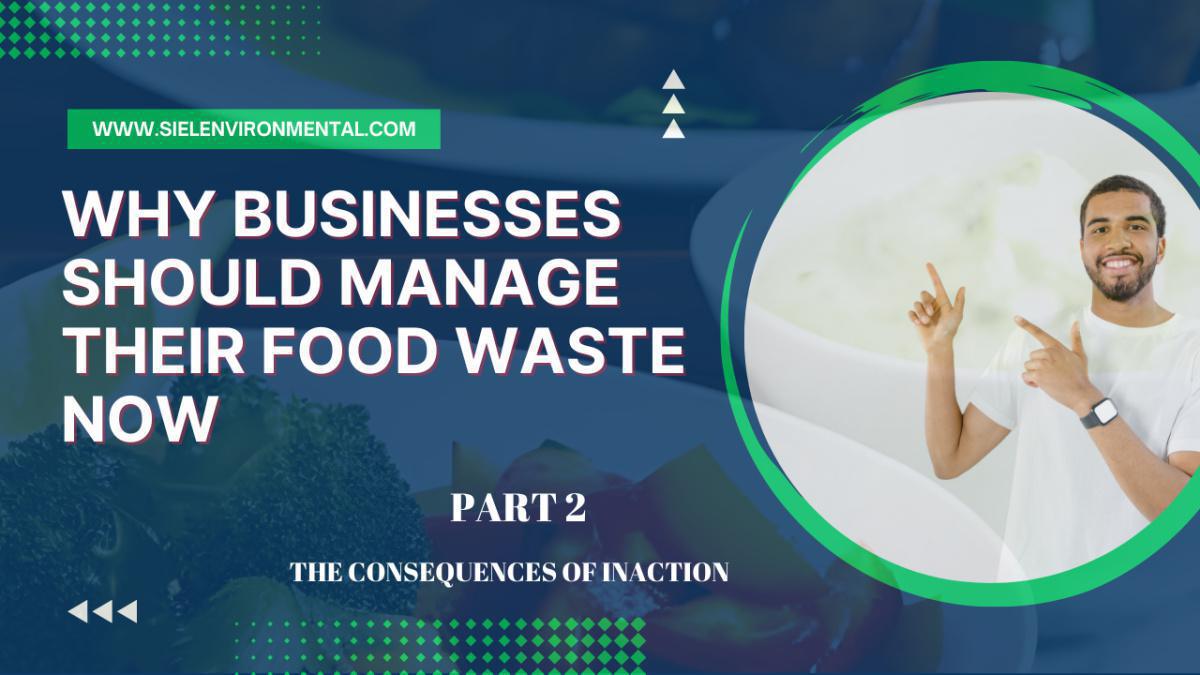This blog continues as I delve into a matter of paramount importance for the region’s businesses. In Part 1, I shed light on the pressing need for Caribbean businesses to address their food waste, as this environmental challenge reaches a tipping point for us all. With breathtaking landscapes and rich biodiversity at stake, the time is ripe for action. Let’s continue the discussion, as we uncover the consequences of inaction, highlighting why Caribbean businesses need to manage their food waste now and its effects on both the natural ecosystem and the vibrant local economy.
I will also cover the government’s role in boosting this along. Let’s explore why managing food waste is not just an option but an urgent imperative for the Caribbean’s sustainable future.
- Financial Losses:
Ignoring food loss and waste can have dire financial consequences for your business. The costs incurred due to inefficient practices, excess inventory, and wasted resources can accumulate and directly impact profitability. Failure to address these losses can lead to increased expenses, reduced margins, and an overall decrease in competitiveness.
- Environmental Impact:
Food loss and waste contribute significantly to greenhouse gas emissions, deforestation, and water scarcity. By not taking action, businesses perpetuate these environmental challenges. This can result in reputational damage, loss of consumer trust, and potential regulatory interventions in the future as governments intensify their efforts to combat climate change.
Incentives Governments Can Develop
- Tax Incentives and Grants: Governments can offer tax incentives and grants to food and beverage manufacturers that adopt sustainable practices and effectively measure and reduce food loss and waste. These financial incentives can offset the costs of implementing new technologies, infrastructure, and training programs.
- Voluntary Agreements and Certifications: Governments can collaborate with industry associations and non-profit organizations to establish voluntary agreements and certifications. By encouraging businesses to commit to specific food loss and waste reduction targets, governments foster a culture of accountability and provide recognition for sustainable efforts, positively influencing consumer perception and market positioning.
- Public-Private Partnerships: Collaboration is key and so the government can also facilitate public-private partnerships to develop research and development projects focused on food loss and waste reduction. By investing in innovation and knowledge sharing, governments can support the industry’s transition towards more sustainable practices, while also driving economic growth.
So why do Caribbean businesses need to manage their food waste now rather than face the consequences?
Addressing food loss and waste in the food and beverage industry is not just a moral imperative but it is also a smart business decision. By adopting, monitoring, and measuring food loss and waste, you can unlock cost savings, improve operational efficiency, enhance reputation, and access new markets. Conversely, neglecting this issue can result in financial losses, reputational damage, and missed opportunities.
At the core of this is the importance of a robust, action-oriented awareness campaign and education program and this is where we come in. Our role is to not only raise public awareness among consumers but to also encourage them to support businesses that actively address this issue, creating a market advantage for proactive organizations.
*This Eco-Learn article is made possible through the 'Doh Waste Good Food' Campaign - a Food Waste management campaign conducted in collaboration with Siel Environmental.

